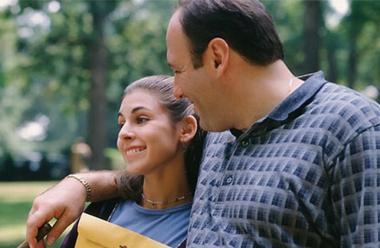I just downloaded the new book by Brett Martin, Difficult Men, Gifted Women. It gives an insider’s view of how cable TV has transformed television with shows like The Wire, The Sopranos, Mad Men, Deadwood and The Shield. (This matters to an anthropologist because as TV goes, so goes American culture.)
In particular, this is the story of ‘difficult men’, such as David Chase, David Simon, Ed Burns, Matthew Weiner, David Milch and Alan Ball. The implication is that it takes some unholy alliance of the cantankerous and the odd to foment a revolution of this order.
As the publisher puts it on Amazon, these men delivered shows that gave us 'narrative inventiveness, emotional resonance, and artistic ambition. No longer necessarily concerned with creating always-likeable characters, plots that wrapped up neatly every episode, or subjects that were deemed safe and appropriate, shows [that] tackled issues of life and death, love and sexuality, addiction, race, violence, and existential boredom'.
Well, that and better television. Way better television. In his role as chairman of the FederalCommunications Commission, Helmut Minow made a careful study of television around 1960 and came to the conclusion that it was a 'vast wasteland', a salted earth from which nothing good could come. Oops. This wasteland now produces remarkable cultural artefacts on a bad day (and Mr Minow owes us an apology).
Vince Gilligan (Breaking Bad) did not make Martin’s 'difficult man’ list, but he shows their inclination to break with conventional form.
'Television is historically good at keeping its characters in a self-imposed stasis so that shows can go on for years or even decades. When I realized this, the logical next step was to think, how can I do a show in which the fundamental drive is toward change?' he explained. Gilligan’s answer: to give us 'Mr Chips [turning] into Scarface'.
Martin’s book raises a question. Some of the new TV is being written and produced by women. Ann Biderman gave us Southland and most recently the spectacular Ray Donovan. Shonda Rhimes isn’t ‘cable’, but with shows like Scandal she takes advantage of (and pushes) the creative liberties the cable revolution makes possible. Mindy Kaling (The Mindy Project) gives us work more sly than dramatic, but the result is rich television And then there is Bonnie Hammer, now consumed, one guesses, by administrative responsibilities at NBC Universal Cable, but in her day a creative force to be reckoned with.
In effect, American TV is conducting a little experiment. It offers us an answer to the once wistful question: 'What would television look like if it were made by women?' The results are clear. Where men (still) insist on using action to drive plot, these women are also prepared to use the mechanics of social interaction to make the thing go.
Women do not forswear action (the film director Kathryn Bigelow saw to that as Hollywood’s great gender- and genre-buster). But they take up what we might call their Austenian advantage. In our world, women are (still) more social, more nuanced, more alert to complexity, less alarmed by complexity, and finally, in the great tradition of Jane Austen, better at storytelling.
Jean-Luc Godard once said that the history of film is 'the history of boys photographing girls'. And this meant that, in the world of the moving image, a male perspective dominated both the filming and the filmed. Now that women are finding a place behind the camera, it is time for a companion piece to Martin’s book. We need a look at the revolution in TV and American culture. There may be no important difference between male and female creatives in this industry. And that would be an interesting finding. Yes, but what are the chances? Surely there are many differences. And that’s the point of rewriting Difficult Men.
My guess is that we will find these women both more and less difficult than their male colleagues. They will be more difficult because they are fighting the daily and the legacy sexism that makes Hollywood Hollywood. (And we know that this is so deeply embedded that only vigilance and aggression will protect a woman with power.)
And women making TV may prove to be less difficult than the objects of Martin’s book. I think it’s just possible that Martin’s men are difficult because they are having to reinvent themselves to reinvent TV. Anyone asked to escape the prisonhood of gender convention in order even to make their art is bound to be cranky.
In any case, we need an answer to Martin – a thoughtful gendered view.
Grant McCracken is an anthropologist and consultant [email protected] More thoughts on gender transformations Grant McCracken: Transformations: Identity Construction in Contemporary Culture, pp 178-192, 2008
Taken from the January 2014 issue of Market Leader. Browse the archive here.
Newsletter
Enjoy this? Get more.
Our monthly newsletter, The Edit, curates the very best of our latest content including articles, podcasts, video.
Become a member
Not a member yet?
Now it's time for you and your team to get involved. Get access to world-class events, exclusive publications, professional development, partner discounts and the chance to grow your network.

